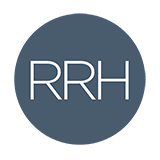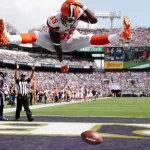The following article appeared on AdAge on Tuesday, April 3, 2017. Read the original here.

By Lindsay Stein, Adrianne Pasquarelli.
Party City just hired Hill Holliday as its lead agency for creative, digital and media duties following a competitive review, according to people with knowledge of the matter.
Zimmerman, which has worked on the Party City business since 2009, competed in the recent pitch. Consulting firm Roth Ryan Hayes supported the review.
“While we are sorry to part ways with Party City, we understand that new management often triggers new agencies,” Zimmerman CEO Michael Goldberg said in an emailed statement.
“That said,” he added, “we will always root for them and take pride knowing we helped them double their revenue, more than doubled their profits, increased unaided awareness from 26% to 86% and drove positive comp sales every year of our relationship — something unheard of in today’s retail marketplace.”
Representatives from Party City were not immediately available for comment. Hill Holliday representatives declined to comment.
Hill Holliday, one of Ad Age’s 2017 Agencies to Watch, has had a busy year so far. The Boston-based shop promoted Chief Growth Officer Chris Wallrapp to president in January, a role that’s been vacant since Karen Kaplan became CEO in 2013. And earlier this month, the agency worked with Tempur-Pedic on a new national advertising campaign, “This Sleep Is Power,” that focuses on about the deeper benefits of a good night’s sleep and how a restful sleep on a Tempur-Pedic mattress can help fuel achievements.
In its first work for Party City eight years ago, Zimmerman began using Michael Jackson’s “Thriller” to drum up Halloween sales — the use of the popular hit, whether with laughing devil babies or dancing zombies, became a tradition repeated every October.
Though it has online competition, Party City has been able to hold its own in attracting shoppers to its 934 brick-and-mortar locations, CEO Jim Harrison said on a recent conference call. The brand grew its ecommerce business in 2016 at double the pace of 2015, he noted.
“While the topic of ecommerce encroachment is a major focus in many industries, the majority of retail shopping in our categories still happens within the four walls of our stores,” Mr. Harrison said on the call. He also noted that since nearly half of Party City products are made in the U.S., the chain will not be subjected to the same pressures as competitors of a potential border tax.
Still, the company, which was founded in 1986, did suffer a sales hit with the delay of Halloween from the weekend to a Monday last year, and the loss trickled into the fourth quarter. Earlier this month, Party City reported that same-store sales were down 3.5% in the fourth quarter and revenue fell 4.1% to $749 million, compared with the year-earlier period.
Party City has also had a recent shakeup with some of its leadership. In November, the chain hired Ryan Vero, formerly of Sears, as exec VP of parent company Party City Holdco Inc. and president of the retail group. It also expanded responsibilities for PCHI President Gregg Melnick to include global strategy with relation to IT and supply and logistics.
The new relationship with Hill Holliday could help the retailer expand into new sources of revenue. Party City, which spent $38.3 million on measured media in the U.S. last year, according to Kantar Media, is exploring new uses for its existing products, which could range from an increased presence in sporting events with souvenir cups to balloons in movie theaters.
“We have the ability now to make party goods, but a lot of what you make are really just products that have alternative uses, not just for parties,” said Mr. Harrison on the conference call, noting that, at $60 million, the category is a growing piece of business.
(Photo credit: Party City)






